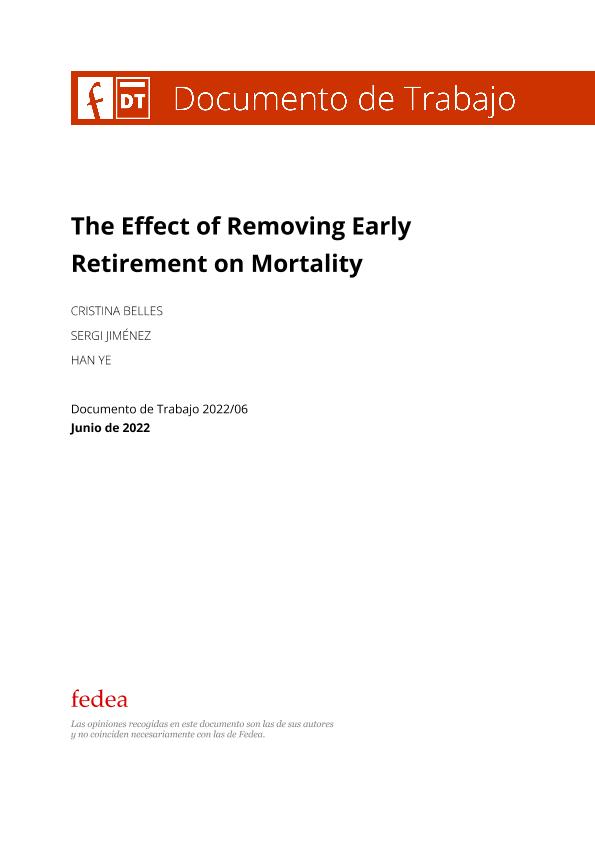The Effect of Removing Early Retirement on Mortality : una disposición poco equitativa, insuficiente y confusa

Contenido multimedia no disponible por derechos de autor o por acceso restringido. Contacte con la institución para más información.

